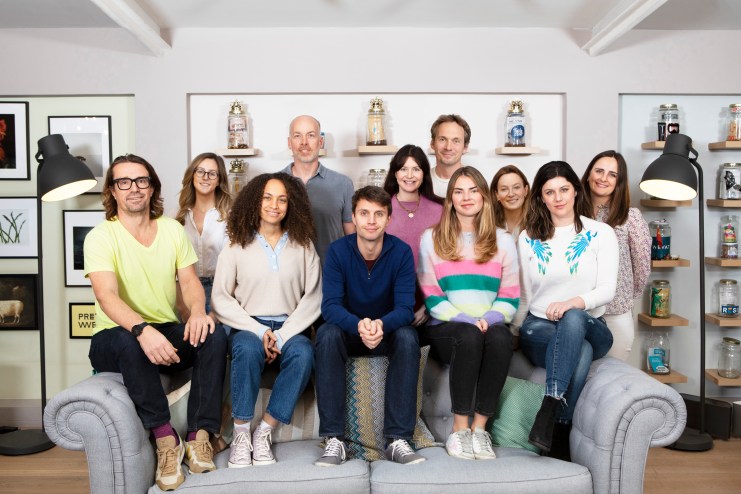Founders not investors now hold the power, says Innocent-founder turned venture capitalist

London venture capital is now so buoyant that startup founders are batting away investors jostling to pump cash into their businesses.
At least, that’s the view of Innocent entrepreneur turned venture capitalist Richard Reed.
Reed, whose JamJar venture capital firm raised a fresh £100m this week including £48m from the state-backed British Business Bank, says the amount of capital sloshing around the UK has turned the relationship of founders and investors on its head in the past 20 years.
Founders, he argues, now hold the power.
“The world is full of money at the moment, and that money is all wanting to put itself into a UK startup,” he tells City A.M.
“Founders get to choose the capital these days, which was absolutely not the case when we were starting out – raising money was the single hardest thing that we’ve ever had to do in business.”
Reed’s firm JamJar was formed in 2012 as the three co-founders of Innocent were preparing to sell up to Coca-Cola, having already advised a swathe of startups on the side while still running the smoothie maker.
With a roster of big name London success stories in its past and present investment portfolio, including Deliveroo, Oatly, Papier and Wild, JamJar has become one of the capital’s most prolific consumer investors.
Reed says the career history of its bosses has been key.
“The fact is that we’ve done more consumer startup investment than any of the funds in London,” he says.
“So whether it’s quantity or quality or depth of experience – I think what we’ve got is a genuinely unique offer of investing.”
In a hyper-competitive venture environment, he says, bringing something more than cash is essential. And venture firms have had plenty to compete with in the past year.
London-based VCs raised a record $9.9bn of cash last year, accounting for 35 per cent of all new European VC funds in 2021, according to research from business growth agency London & Partners.
But with a fresh £100m warchest including £48m from the taxpayer, the firm is now focused firmly on putting itself at the front of the consumer goods sector.
“When you look at where the new money has come from, it’s British taxpayers’ money, it’s our personal money, our founders’ money and our friends and families’ money,” he says.
“That is very much concentrating the mind and making sure we do this well. We find it massively motivating.”
Time will now tell just how many founders are willing to bat away Reed and his co-founders’ offer of investment.